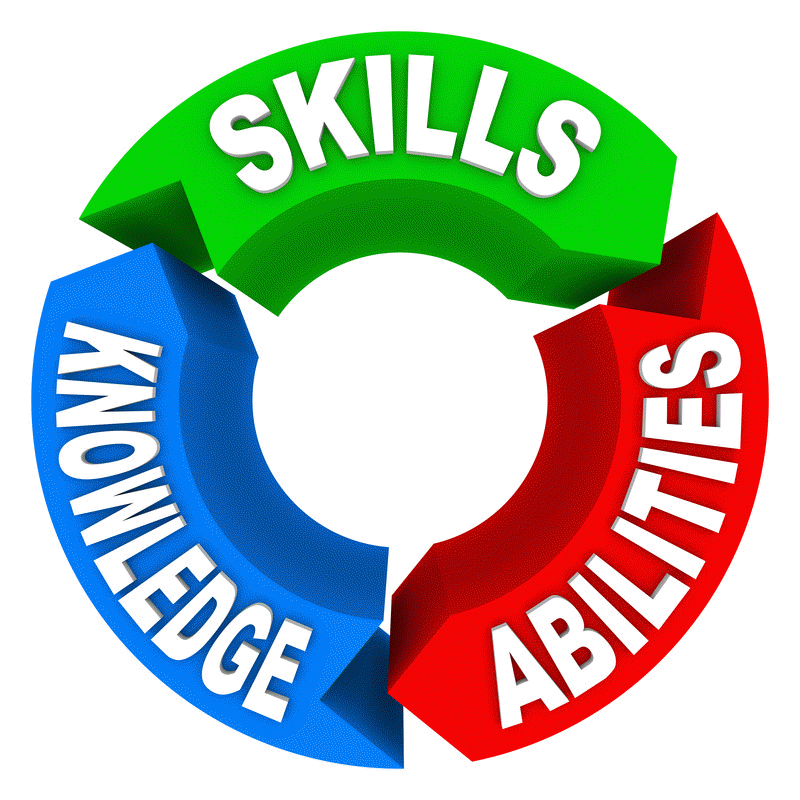The Difference Between Knowledge, Skills and Abilities
Posted by Admin | May 27, 2016

Confession: I have a tendency to use these terms interchangeably at times. Truth is, I shouldn’t. Knowledge, skills, and abilities (aka KSAs) are three different things. And it’s important to know the difference – even though the difference can be subtle.
Knowledge is the theoretical or practical understanding of a subject. For example, an employee might have knowledge of the ADDIE model used in instructional design. This doesn’t mean the employee knows how to be an instructional designer. It means they know the model.
Skills are the proficiencies developed through training or experience. Using the ADDIE example, the employee has demonstrated skills in applying the ADDIE model when designing training programs. Skills are usually something that has been learned. So, we can develop our skills through the transfer of knowledge.
Abilities are the qualities of being able to do something. There is a fine line between skills and abilities. Most people would say the differentiator is whether the thing in question was learned or innate. I think of organization and prioritization as abilities that can help an employee develop their instructional design skills.
The reason we sometimes use the terms interchangeably is because they are all “must-haves” in our career. Recruiters look for knowledge, skills, and abilities during the hiring process. Managers use KSAs when they are considering employees for transfers and promotions. KSAs are used as the company creates and updates their replacement and succession plans.
As we talk more about the skills gap, it will be important to understand the difference because the way we obtain knowledge, skills, and abilities can vary. And if we’re an organization trying to figure out how to solve the skills gap that exists within our workforce, then we have to link the right solutions.
For instance, if the issue is knowledge, then maybe we can create an in-house library that employees can check out books on the topics. But if the challenge is skills, the answer might be training. And if abilities need to be improved, is it possible to develop personal action plans that give employees the opportunity to refine their abilities.
Thank goodness we have the terminology purists to correct us on the words. There are times when it’s fine to use the terms interchangeably and others when we need to emphasize the exact term. Regardless, they’re all equally important.
